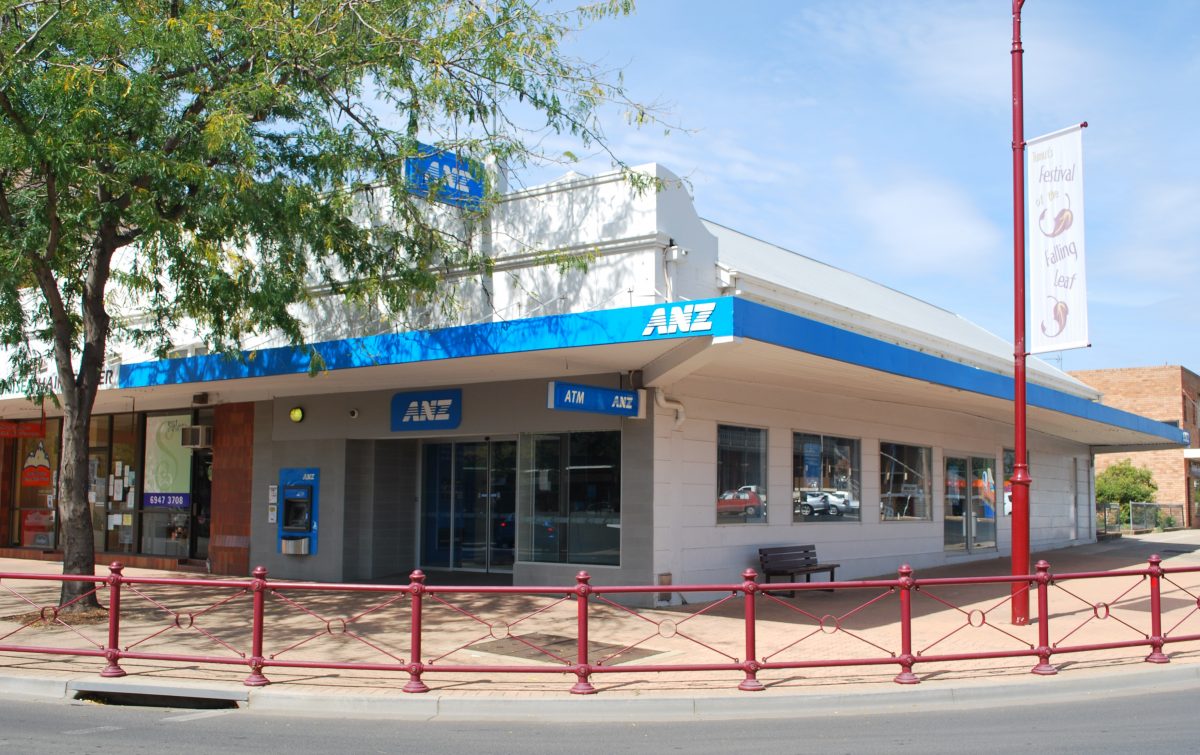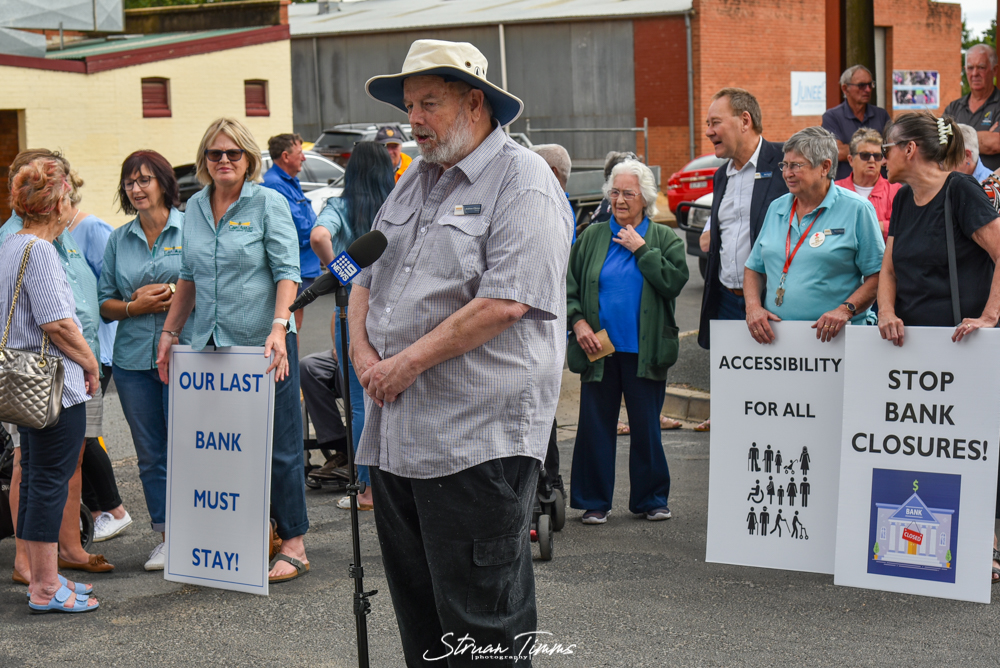
Tumut’s ANZ bank branch will close in April. Photo: Wikimedia Commons.
The Westpac and ANZ banks will close their last branch in the towns of Hay and Tumut respectively, refusing to replicate the Commonwealth Bank of Australia (CBA) decision to postpone the planned shutting of its Junee branch while a Senate committee inquiry on regional bank closures takes place.
A sustained community campaign led by Junee Shire Council saw CBA reverse its unpopular decision to end its service in the town by March.
“Following consideration of a request from the Senate Committee, CBA will not close any regional branches while the Inquiry is underway in 2023,” a CBA spokesman said. “As an additional sign of good faith, while the Inquiry is underway in 2023, CBA will postpone the closure of two branches [including Junee] already announced.”
Region asked both Westpac and ANZ whether they would follow suit. Westpac had planned to shut its last Hay branch on 24 February, while ANZ announced its Tumut bank would close in April. Both banks responded indicating the closures would go ahead as planned, defying a request by Nationals MP Matt Canavan to stop shutting regional branches until a Senate inquiry on the topic he is chairing concludes in December.
“Westpac looks forward to working with the Senate References Committee Inquiry into regional banking services,” a bank spokesperson said.
“Westpac will postpone eight regional branch closures that were announced in February 2023. No further decisions on regional closures will be made while we engage with the inquiry.
“We will, however, be continuing with our publicly announced branch co-location program, where we bring two branches and customer service teams together under one roof. These co-located branches allow us to invest and stay in communities and have been well received by customers in more than 30 locations.”
Dale Webster, a long-time campaigner against rural bank closures, was scathing of both Westpac and media outlets who she said misinterpreted the bank’s statement to indicate they were following the CBA’s lead.
“The Westpac communications team … managed to flip the bird at six federal senators this week and pull off one of the most stunning PR subterfuges I have ever witnessed,” she wrote on her website.
“What Westpac failed to mention was that it was still proceeding with the bulk of its planned closures, a further 13 Westpac and Westpac-owned branches.”

Protesters outside the Commonwealth Bank in Junee. Photo: Struan Timms Photography.
However, Westpac will postpone its much-publicised decision to close its last bank in the Victorian town of Sale for at least 12 months, after the original decision was subjected to a scathing critique by Nationals MP Darren Chester.
“Forget about crooks wearing balaclavas – the real bank robbers are the executives making decisions in city boardrooms. These corporate bank robbers are robbing country towns of jobs, they’re robbing vulnerable people of services and they’re robbing regional Australia of growth opportunities,” he told Parliament in a speech on 6 February.
An ANZ spokesperson said: “Branch closures announced in 2022 and now in the final stages will proceed given we believe delaying these long-planned closures would be more disruptive to customers and staff.
“ANZ remains committed to engaging constructively with the Committee and will postpone announcing any further closures of regional branches until the conclusion of the inquiry in December this year. We believe that this is important to allow the Committee to complete its work.”
The National Australia Bank will also push ahead with its planned shutting of regional banks.
“We will be continuing our branch reshaping process during the Committee’s deliberations in 2023, which will include closures, consolidations and new investments to meet our customers’ needs,” NAB retail executive Krissie Jones said in a statement.
Research from Ms Webster indicates there are now 597 towns across Australia that once had a bank that no longer has a financial institution in their town, with more than two-thirds of regional bank branches closing since 1975.
Further details on the new Senate inquiry into regional bank closures can be found here. The committee is currently accepting submissions and is due to hand down its report and recommendations on 1 December, 2023.
Original Article published by Oliver Jacques on Region Riverina.










